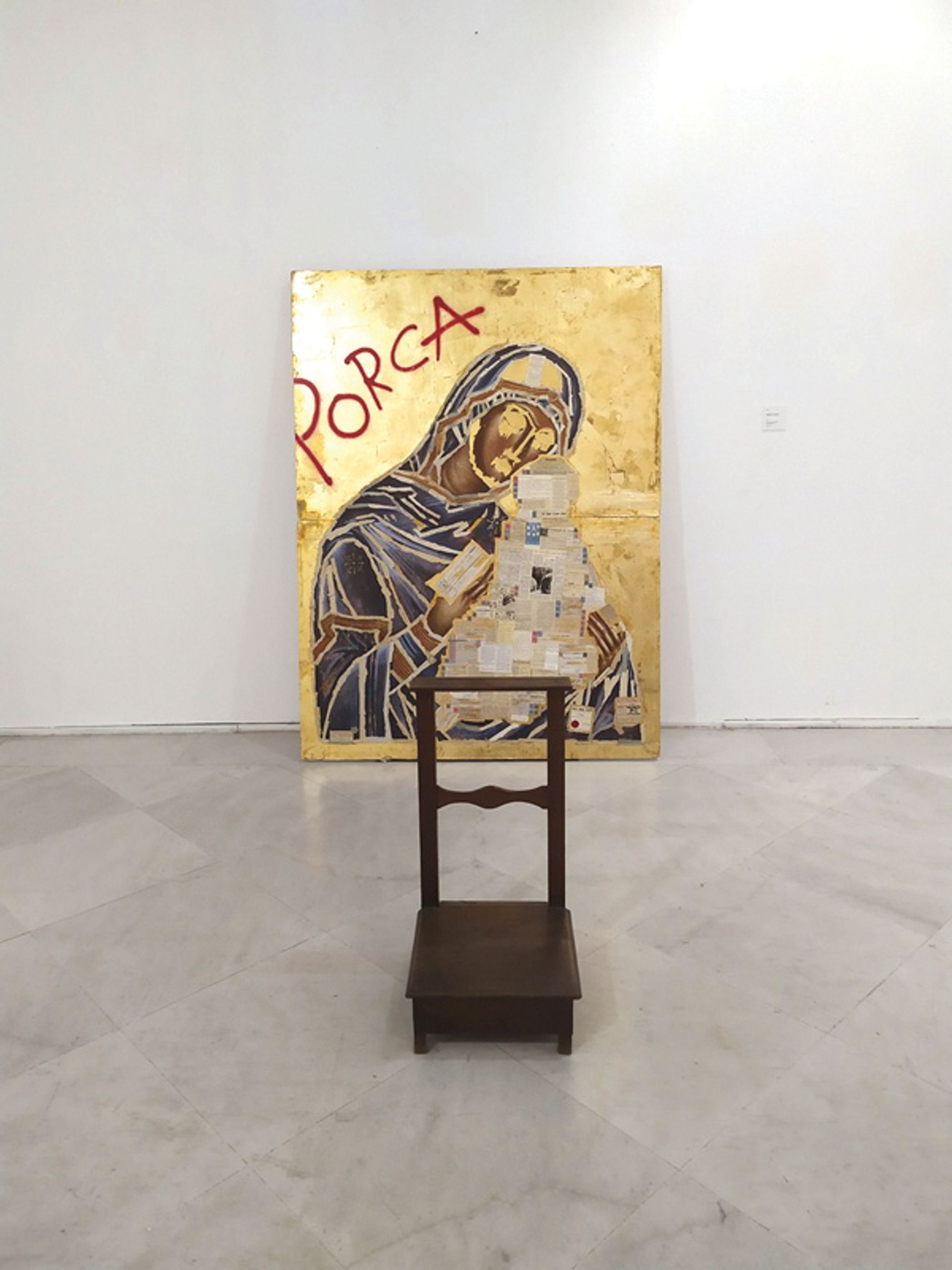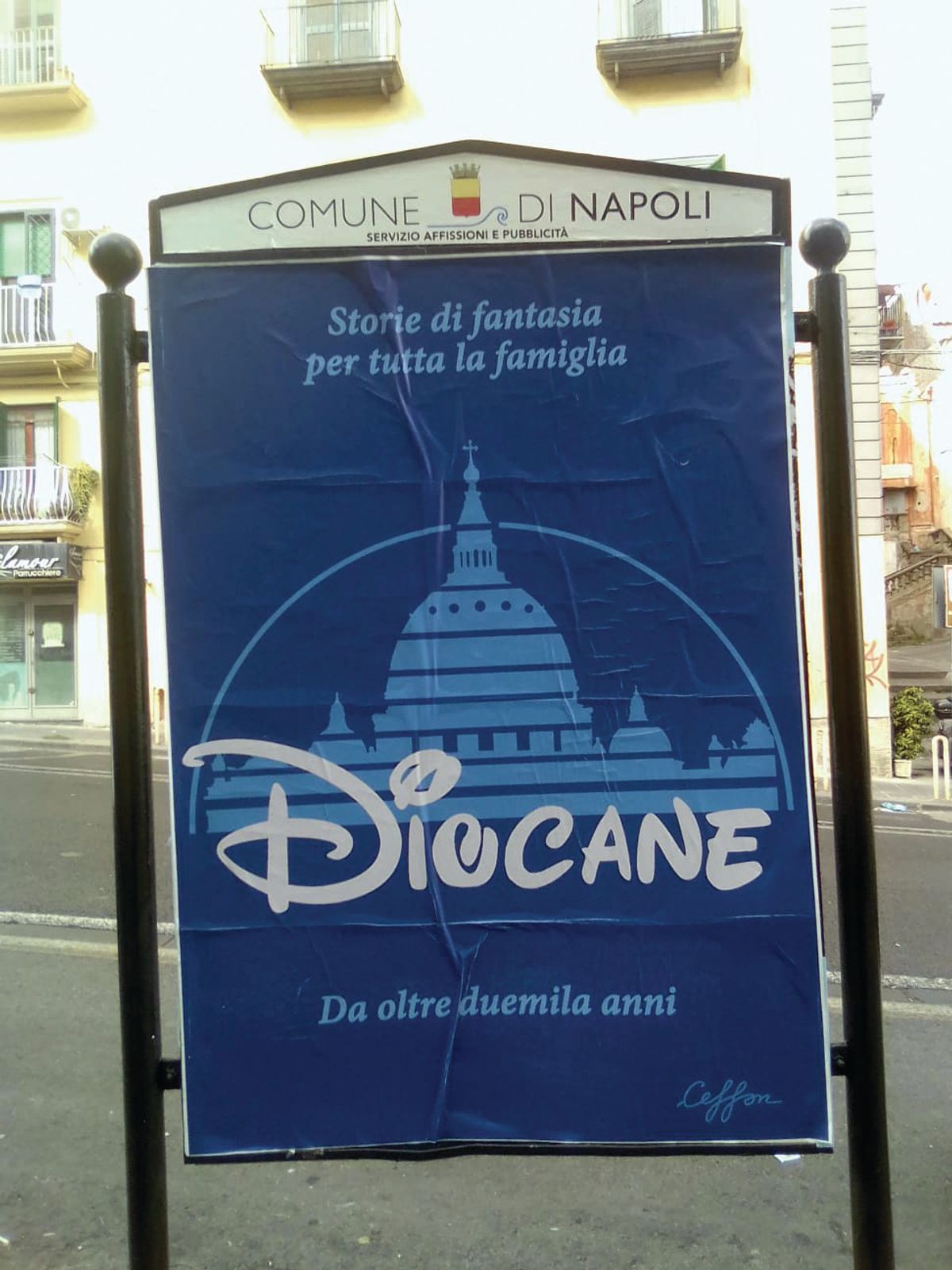Artists who participated in a controversial anti-censorship festival in Naples in September sparked outrage among residents and national figures including the hard-right politician Matteo Salvini. The festival’s organisers were bombarded with complaints following an act of “subadvertising”, in which dozens of posters brandishing taboo Italian language were pasted across the historic centre. The city council, which had helped to promote the festival, responded by cancelling one of the main events.
Called Ceci n’est pas un blasphème (this is not blasphemy), the festival’s inaugural edition took place in venues provided free of charge by Naples City Council from 17-30 September. Funded through donations and crowdfunding, the initiatives included talks, stand-up comedy sessions and a homonymous exhibition of “anticlerical art” at the council-funded Palazzo delle Arti Napoli (PAN), which included provocative posters, installations and a mock confessional where visitors could “blaspheme in confidence”.

The inaugural edition of Ceci n’est pas un blasphème (this is not blasphemy) took place in venues across Naples from 17-30 September
With religiously offensive language punishable by death in at least eight countries and finable in parts of Europe, including Italy and Spain, blasphemy laws are frequently instrumentalised to limit freedom of expression and legitimise persecution, according to the campaign group End Blasphemy Laws. Emanuela Marmo, the artistic director of Ceci n’est pas un blasphème and a seasoned campaigner against blasphemy laws, launched the festival to draw attention to the practice.
But controversy erupted after the artists Ceffon, DoubleWhy and Illustre Feccia—whose works featured in the show—secretly distributed controversial posters on walls and billboards across Naples on 21 September. In works parodying brands such as Disneyland and Mickey Mouse, the artists altered texts to form Italian expletives including “Dio Cane” (dog God) and “Porco Dio” (swine God).
Marmo says that the festival had not been aware of the artists’ plans. Both Marmo and the city council received numerous written complaints, while social media channels were flooded with expressions of outrage. In one tweet, Salvini, the leader of the hard-right Lega party, wrote: “I have no words for what has happened [in Naples], the left has fallen to new lows”. On 28 September, around ten local residents protested against the festival, enlisting a pavement artist to draw religious images on a street outside PAN before confronting Marmo near the museum and insulting her, the artistic director says.
The council quickly removed the posters because they were “illegally pasted over regularly paid-for adverts without authorisation”, a city spokesman says. Subsequently, councillors ordered the cancellation of a performance by Abel Azcona—a Spanish artist whose controversial works have led to numerous legal proceedings—scheduled to close the festival on 30 September. According to Marmo, officials pulled the event to avoid stoking controversy ahead of local elections on 3 and 4 October.
Nevertheless, Marmo says the furore has given added visibility to the anti-censorship cause. Aiming to establish the festival as a biennial event, she has assembled a seven-person steering committee to conduct year-round research. A further collaboration between the city and the festival “could be possible; the exhibition promoted an important cause”, the council spokesman says.
“We would love to work with Naples again,” Marmo says. “If that doesn’t happen, we will try to find another Italian city or work abroad through the Italian Cultural Institute.”


